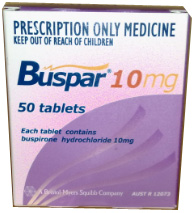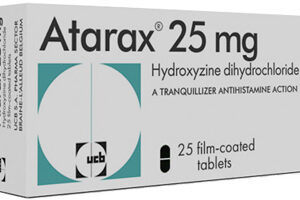Introduction to Atarax
Atarax (hydroxyzine hydrochloride) is an antihistamine medication used primarily for its sedative properties to manage anxiety and tension. Additionally, it is effective in treating itching due to allergies, providing relief from pruritic conditions. Atarax works by reducing activity in the central nervous system and also acts as an antagonist to certain histamine receptors, which helps decrease allergic reactions.
Indications and Uses
Atarax is prescribed for various uses including:
- Anxiety Relief: It is used to relieve anxiety and tension in both acute and chronic cases.
- Allergy Treatment: Effective in controlling itching and other allergic symptoms.
- Sedation: Often administered preoperatively to help reduce anxiety and induce sedation before surgery.
Dosage Table for Atarax (Hydroxyzine Hydrochloride)
For Anxiety and Tension:
| Patient Group | Dosage | Frequency | Notes |
|---|---|---|---|
| Adults | 50-100 mg | Daily, divided into several doses | Adjust based on clinical response |
| Children | 0.6 mg/kg | Daily, divided into several doses | Dose based on body weight |
For Allergic Conditions:
| Patient Group | Dosage | Frequency | Notes |
|---|---|---|---|
| Adults | 25 mg | Three to four times per day | Adjust dose based on symptom control |
| Children | 0.6 mg/kg | Daily, divided into several doses | Dose based on body weight, adjust as necessary |
For Preoperative Sedation:
| Patient Group | Dosage | Frequency | Notes |
|---|---|---|---|
| Adults | 50-100 mg | Once, typically administered 1 hour before procedure | Based on the level of sedation needed |
| Children | 0.6 mg/kg | Once, typically administered 1 hour before procedure | Dose adjusted for optimal sedation |
Key Considerations:
-
- Initial Dosing: The initial dose for managing anxiety in adults may vary depending on the severity of the symptoms and patient response.
- Maintenance Dosing: For long-term management, it is essential to adjust the dose to the lowest effective amount that provides symptom control without excessive side effects.
- Special Populations: Dosing in the elderly should be cautious, as they are more sensitive to the sedative effects and potential side effects of antihistamines. Lower initial doses may be necessary.
- Administration: It is recommended to take Atarax with food if gastrointestinal discomfort occurs. Always follow the prescribing information closely or the specific directions given by a healthcare provider.
Tablets and Oral Suspension: Atarax is available in tablet form and as an oral suspension, allowing for flexible dosing options based on patient needs.
Precautions and Warnings
Patients considering Atarax should discuss their full medical history with their healthcare provider, particularly if they have any heart problems, liver disease, or other chronic conditions. Atarax can cause drowsiness, so patients should avoid driving or operating heavy machinery until they know how the medication affects them. It is also important to avoid alcohol, as it can increase the sedative effects of the drug.
Contraindications
Atarax should not be used by patients with a known allergy to hydroxyzine or by those who are pregnant or breastfeeding, unless specifically directed by a healthcare provider. Additionally, it should be used with caution in the elderly, as they are more susceptible to its side effects, particularly sedation and urinary retention.
Potential Interactions
Hydroxyzine may interact with other medications that cause drowsiness, including opioids, benzodiazepines, and alcohol. It is crucial to inform your healthcare provider about all medications and supplements you are currently taking to avoid adverse interactions.
Common Side Effects
Atarax (hydroxyzine hydrochloride) is an antihistamine commonly used to treat anxiety and tension, or to relieve itching due to allergic reactions. While it is effective in managing these symptoms, it can also cause side effects that may affect daily activities:
- Drowsiness: A very common side effect, which may impair your ability to drive or operate machinery. Avoid engaging in activities that require alertness until you know how Atarax affects you.
- Dry Mouth: Frequent with the use of many antihistamines; staying hydrated and using sugar-free gum or candies can help alleviate discomfort.
- Dizziness: This can occur, particularly at higher doses or upon standing up quickly. Taking the medication at bedtime or adjusting the dosage can help minimize this effect.
Serious Side Effects
While most side effects of Atarax are mild and manageable, some more severe reactions require immediate attention:
- Heart Issues: In rare cases, Atarax can cause palpitations or an irregular heart rate. It’s important to seek medical attention if you experience these symptoms.
- Vision Changes: Any sudden changes in vision should be reported to a healthcare provider immediately.
- Difficulty Urinating: This can be a sign of a more serious condition, especially in older adults.
Immediate Concerns
Certain symptoms are considered medical emergencies:
- Severe Allergic Reactions: Signs of an allergic reaction include hives, difficulty breathing, and swelling of the face, lips, tongue, or throat. Seek emergency medical attention if these occur.
- Confusion or Agitation: Rare but serious, these symptoms can indicate an adverse reaction to the medication and require prompt medical evaluation.
Managing Long-Term Use
To safely use Atarax over extended periods:
- Regular Medical Reviews: It’s important to have frequent check-ups with your healthcare provider to monitor the effectiveness of the treatment and any side effects.
- Adjustment of Dosage: Depending on your response to the medication and any side effects you experience, your doctor may adjust your dose.
- Awareness of Drug Interactions: Atarax can interact with other medications, particularly those that cause drowsiness, such as sedatives, sleeping pills, and muscle relaxants. Always inform your healthcare provider about all other medications you are taking.
Conclusion
While Atarax is effective for easing anxiety and allergic reactions, it is essential to be aware of and manage its side effects through careful monitoring, lifestyle adjustments, and ongoing communication with your healthcare provider. This ensures that the benefits of using Atarax continue to outweigh the potential risks.



Reviews
There are no reviews yet.